Nigeria. The open wound of kidnapping priests.
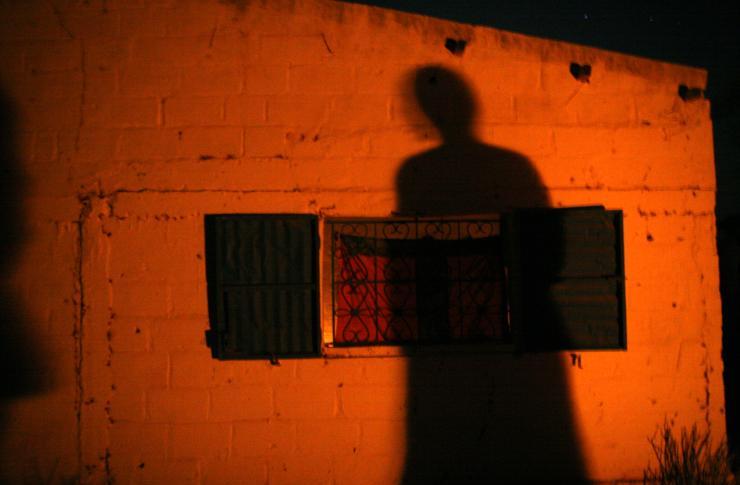
Kidnapping for ransom has long become a real industry in Nigeria. Priests and religious are the target.
It is a sunny and hot Sunday morning. Father Steven is getting ready to go to celebrate mass in one of the parish chapels where today the community is celebrating the first communions. The previous evening, he had held a meeting with the catechists and some of the children’s parents and everything was ready for the ceremony. He leaves the house, making sure he has everything he needs with him and reaches his old motorbike. “How many kilometres have we done together”, he thinks, smiling. The motorbike starts right away. Passing through the gate, he greets some Christians going to church for mass. It’s not long before arrives to the outskirts of town.
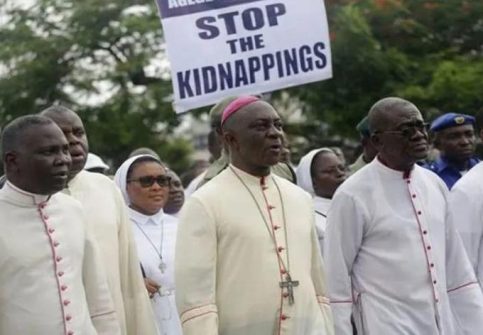
Church leaders in Nigeria demonstrate against kidnappings targeting priests. Photo: AciAfrica
Despite being a Sunday, he meets only a few cars and motorbikes. The road has many bends so he has to drive slowly, he thinks about his curate, Father Eugene, who recently had a fall from his motorbike but luckily was not injured. His thoughts are suddenly interrupted when some armed men order him to stop, firing several shots into the air. He has no choice but to approach them slowly.
They tell him to get off the motorbike, to stay calm and reassure him that everything will be all right. They tie his hands behind his back but before they cover his head with a hood, Father Steven sadly witnesses his old motorbike being burned.
He is put onto a pickup with some men and drive off quickly while other men follow them on motorbikes. The young priest was able to count eight and asked himself, who could they be? Terrorists or bandits? Father Steven understands, however, that they are not from the area, they speak Arabic but with different accents. After two or three hours’ drive, they stop and let him get off, take off his hood and give him some water. The kidnappers know that the priest is a precious asset and tell him that they have already contacted the bishop. Father Steven realizes that they are well-organized people and know their way around.
He also understands that these people are only the operational part of a larger scheme, the people with the power, who also have high-level contacts, are elsewhere. He is then tied with a chain to a tree and has no idea where he might be. As the hours pass, he listens to irritable voices and many mobile phone calls.
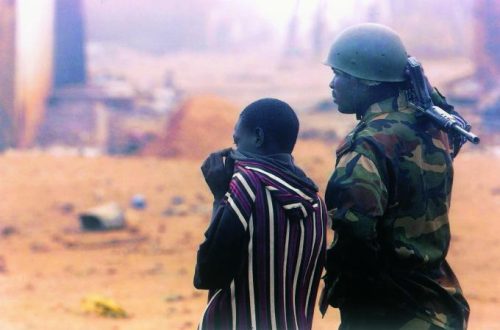
The kidnapping economy is increasingly expanding, also due to the government’s inability to react. File swm
Three days later, towards evening they put him back in the pickup and placed a hood over his head. A few hours later they remove the rope from his hands, take the hood off and show him a path he must follow. Father Steven walks in the night, in the light of a full moon, for several kilometres until he sees the headlights of a car approaching. When it stops, he realises it is the Vicar General of the diocese together with a layman, they give him a welcoming hug and he gets into the car. During the journey, no one speaks as they are very tense but gradually the fear passes. When they finally reach home, the bishop and some priests are waiting for them. The next day Father Steven learns that a ransom of $20,000 was paid for his release.The kidnapping of priests and religious staff is a growing phenomenon. John Osakwe, an analyst for a security agency in Lagos comments: “The kidnappers know that the church does not abandon its priests, they are therefore considered easy and sure profitable prey.” From 2023 to March 2024, 25 priests were kidnapped in Nigeria, 22 were released after the ransom was paid and three were killed. Most of the priests who were victims of kidnapping were captured along the road or in attacks on their homes.
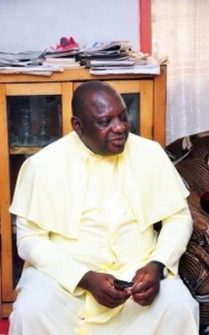
Fr. Vitus Borogo, killed at Prison Farm, Kujama, during a terrorist raid. Photo AciAfrica
The kidnapping economy is increasingly expanding, also due to the government’s inability to react. President Bola Ahmed Tinubu had promised to crack down on the kidnappings but between 2021 and 2023, risk management consultancy SBM Intelligence recorded the abductions of 3,964 people. However, the number could be much higher because not all abductions are reported to the authorities.
It is not easy to distinguish between kidnappings committed by terrorist groups or by criminal groups just trying to obtain an economic return. Whether committed by terrorists or bandits, some distinct forms of kidnapping have been catalogued: planned kidnappings of specific, previously identified people; arbitrary kidnappings, especially along the streets, taking victims at random; mass kidnappings (with raids generally planned on villages, places of worship, including churches and mosques, schools, trains and railway stations). In the case of kidnappings of precisely chosen victims, both kidnappings along the usual route of the person to be kidnapped and nocturnal attacks on the home were noted. There is a high level of complicity by the banks through which most of the ransoms are paid. As reported in an article by The Nation in Nigeria, there are 133 million bank account holders, of which five million are fake. Banks use stolen identity cards of dead people to open accounts that are used by kidnappers to receive ransom payments.
“We have no more money to pay the kidnappers”
“The lack of security is impoverishing the Church in Nigeria – said Mgr. Matthew Hassan Kukah, bishop of the diocese of Sokoto – Most of the money was spent to rescue priests, seminarians and other pastoral workers who were kidnapped by various groups of militiamen in the region”. Speaking of his diocese he continues: “We had our churches burned, our cathedral was almost destroyed. I lost a priest and a seminarian. We no longer have money to save our pastoral agents
from kidnappers.”
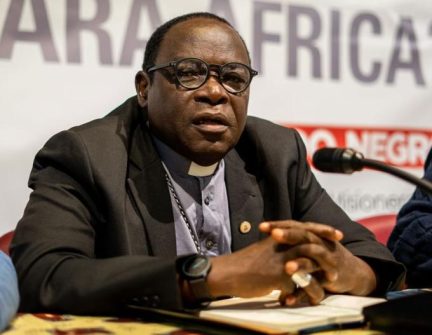
Mgr. Matthew Hassan Kukah, bishop of the diocese of Sokoto. Photo: Javier Sánchez Salcedo
In a letter addressed to the church in Nigeria, the secretary of the Dicastery for Evangelization, the Nigerian archbishop Fortunatus Nwachukwu says: “Nothing can justify the crime of kidnapping. The physical violence and mental torture that accompany kidnappings undermine the pillars of civil and social harmony, as they traumatize the people involved, their families and society in general.”
“Our thoughts and prayers are with the bishops, clergy and religious, seminarians, devout members of the Church, all Christians and people of goodwill throughout the nation,” continues the letter in which he expresses “a deep sense of empathy for the innocent victims of these kidnappings and their families”. “Equally, we call on the Government of Nigeria to act quickly to address this threat and stop the ongoing crisis.” Archbishop Nwachukwu hopes that “in addition to adopting measures to protect lives and property, the State, with the support of the Church, should seek ways to reposition the nation on the path to economic growth, political stability and religious cohesion”.
Robert O. Omoweh



